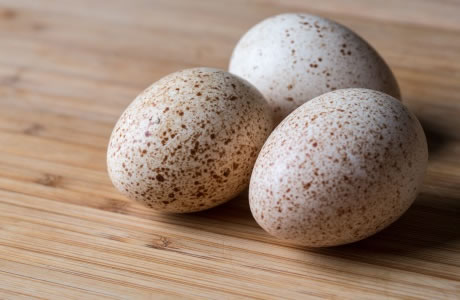Turkish Eggs, also known as Cilbir, are a traditional Turkish dish that combines poached eggs with creamy yogurt and spicy chili butter. This savory breakfast or brunch option is not only delicious but also packed with flavors that will tantalize your taste buds. In this guide, we'll take you through the process of creating the perfect Turkish Eggs step by step.
Ingredients Required

Before diving into the cooking process, let's gather all the ingredients needed to make Turkish Eggs:
- Eggs
- Greek yogurt
- Garlic
- Lemon juice
- Butter
- Paprika
- Red pepper flakes
- Salt
- Fresh parsley (optional, for garnish)
Step 1: Preparing the Yogurt Sauce
Begin by mixing Greek yogurt with minced garlic, lemon juice, and a pinch of salt in a bowl. This creamy yogurt sauce will serve as the base for your Turkish Eggs, adding richness and tanginess to the dish.
Step 2: Making the Poached Eggs
Next, poach the eggs until the whites are set but the yolks are still runny. This can be done by bringing a pot of water to a gentle simmer, adding a splash of vinegar, and carefully cracking the eggs into the water. Let them cook for about 3-4 minutes before removing them with a slotted spoon.
Read More : Traditional New Years Foods to Bring Good Luck in 2024
Step 3: Preparing the Chili Butter
While the eggs are poaching, melt butter in a small saucepan over low heat. Once melted, add paprika, red pepper flakes, and a pinch of salt to infuse the butter with spicy flavor. Stir well and remove from heat.
Step 4: Assembling the Dish
To assemble the Turkish Eggs, spread a generous amount of the yogurt sauce onto a serving plate. Carefully place the poached eggs on top of the yogurt sauce. Drizzle the chili butter over the eggs, allowing the spicy butter to mingle with the creamy yogurt and runny egg yolks. Garnish with fresh parsley if desired.
Tips for Perfect Turkish Eggs
- Use fresh, high-quality eggs for the best results.
- Adjust the amount of chili butter according to your preference for spiciness.
- Serve Turkish Eggs immediately after assembling to enjoy them at their best.
- Experiment with different herbs and spices to customize the flavor to your liking.
Variations and Additions
While the traditional Turkish Eggs recipe is delicious on its own, feel free to get creative and add your own twist to the dish. Some popular variations and additions include:
- Adding sautéed spinach or kale for extra nutrients.
- Serving Turkish Eggs with toasted bread or pita for dipping.
- Incorporating roasted vegetables like tomatoes or bell peppers for added flavor and texture.
Health Benefits of Turkish Eggs

Turkish Eggs are not only flavorful but also nutritious. They are packed with protein from the eggs and yogurt, while the chili butter adds a dose of healthy fats and antioxidants. Plus, the dish is low in carbohydrates, making it a satisfying option for those following a low-carb or keto diet.
Serving Suggestions
Turkish Eggs can be enjoyed for breakfast, brunch, or even dinner. Pair them with a side of fresh salad or roasted vegetables for a complete and balanced meal. They also make a great appetizer or snack for gatherings and parties.
Conclusion
In conclusion, mastering the art of making Turkish Eggs is easier than you think. With just a few simple ingredients and steps, you can create a flavorful and satisfying dish that will impress your family and friends. So why not give it a try and experience the delight of Turkish cuisine in your own kitchen?
(FAQs)
Q. What is the origin of Turkish Eggs?
Ans: Turkish Eggs, also known as Cilbir, have their origins in Turkish cuisine and are believed to have been enjoyed for centuries.
Q. Can I use Greek yogurt instead of regular yogurt?
Ans: Yes, Greek yogurt can be used as a substitute for regular yogurt in Turkish Eggs, offering a thicker and creamier texture.
Q. How spicy is the chili butter?
Ans: The spiciness of the chili butter can be adjusted according to your taste preferences by adding more or less red pepper flakes.
Q. Can I make Turkish Eggs ahead of time?
Ans: While Turkish Eggs are best enjoyed fresh, you can prepare the components in advance and assemble them just before serving for optimal taste and texture.
Q. Are there any vegetarian variations for Turkish Eggs?
Ans: Yes, you can make vegetarian variations of Turkish Eggs by omitting the poached eggs and adding roasted vegetables or sautéed greens as a topping instead.
Read More : Healthy Breakfast Banana Split